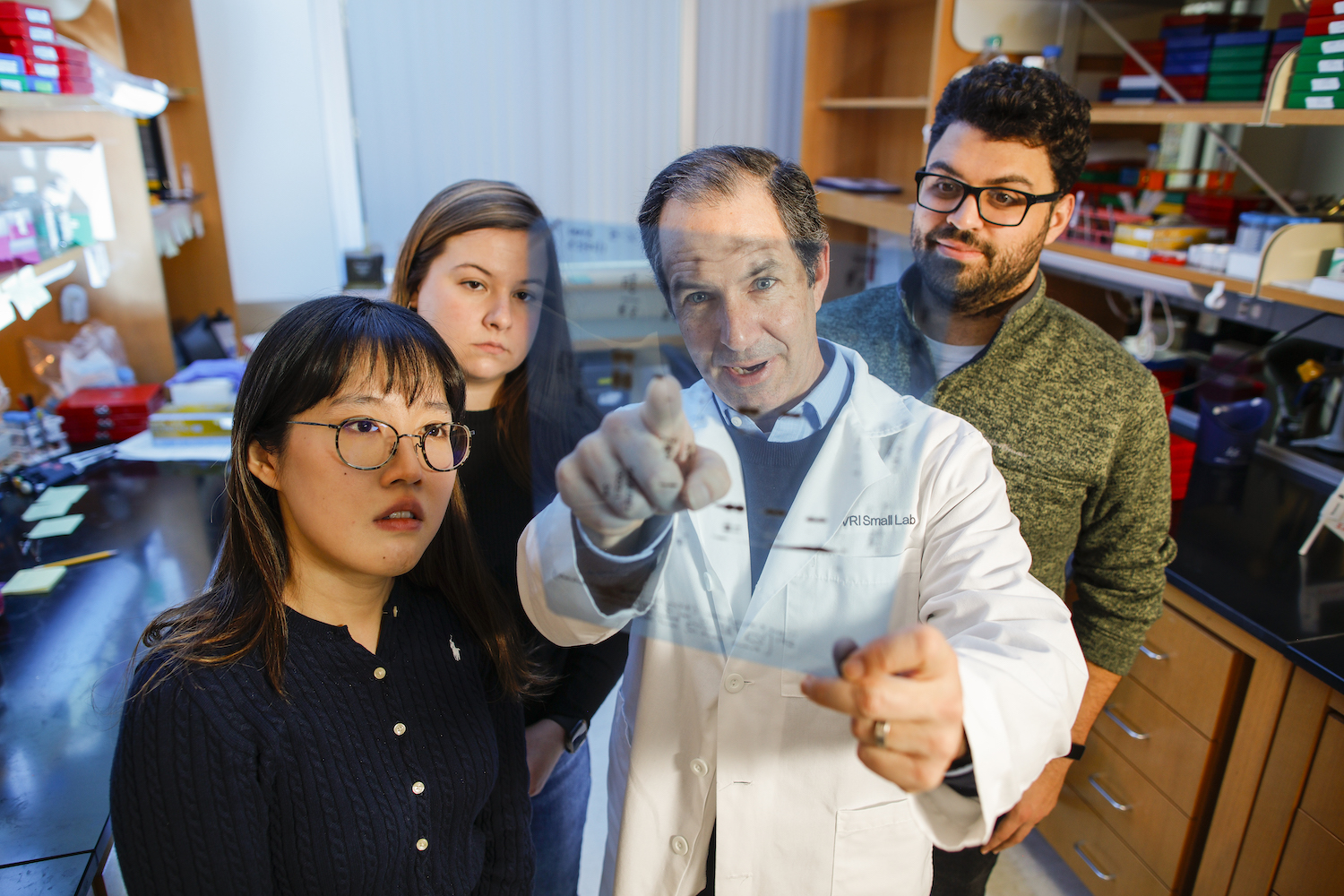About UR CTSI
The UR Clinical and Translational Science Intitute (CTSI), established in 2006, is a research engine that helps researchers connect, learn, and get what they need to improve and speed the development of interventions to improve health outcomes for all people. UR CTSI is one of the original 12 institutions funded by the Clinical and Translational Science Awards Program, which fosters institutional collaborations to improve the efficiency, quality, and impact of the translational research process.
Our focus is on the intersection of translational science and health equity.
Our Mission
The UR CTSI’s mission is to improve the health of our communities in Rochester, the region, and the nation.
Our Vision
The UR CTSI will be a replicable, scalable, and sustainable model environment for research across the translational spectrum from molecules to populations, responsive to community priorities, and conducted by transdisciplinary, patient, and community-engaged teams, to improve population health.
Institutional Values
- Integrity: The UR CTSI promotes research that is reproducible, community-engaged, and compliant with rules and regulations.
- Inclusion: The UR CTSI strives to create an inclusive and welcoming environment for all.
- Compassion: The UR CTSI demonstrates compassion through our goal of improving population health and reducing health disparities in our communities.
- Accountability: The UR CTSI is accountable to the University and funding agencies as well as local and global communities for whom we provide research and education programs. We are committed to developing metrics of accountability consistent with these values.
- Respect: The UR CTSI respects the differing values of the communities we serve: students, researchers, patients, and community members. We are committed to the value of team science, which includes fostering a culture of transdisciplinary respect and active engagement with scientists of every background and perspective.
- Excellence: The UR CTSI strives to be a national model for excellence in translational science and research education programs. We are dedicated to training and supporting researchers to enable them to achieve the highest quality of work in their fields and are committed to excellence in translational research at a national level by balancing efficiency, integrity, and timeliness.

Institutional Commitments
UR CTSI is committed to:
- Funding innovative, early-stage research
- Training the next generation of translational scientists and researchers
- Engaging the community throughout the research process
- Integrating underserved populations into health research
- Advancing the use of state-of-the-art technologies to handle clinical and research data
- Increasing the quality and efficiency of research through processes innovation
Institute Branches
The UR CTSI is composed of five operational branches: Informatics, Population Health, Research Education and Career Development, Research Services, and Translational Science. Each branch is led by strategic and operational leaders who oversee the execution of the branch's assigned function and programming.
The UR CTSI is also home to three offices and two centers: the Office of Clinical Research, the Office of Regulatory Support, the Office of Research IT, the Clinical Research Center, and National Center for Deaf Health Research.
We View Translational Science Through a Health Equity Lens

The UR CTSI is dedicated to advancing translational science with a specific focus on improving health equity. We are committed to improving the processes that translate research discoveries into treatments and interventions that enable all people to achieve the best health possible.
Translational Science
Translational science creates research innovations to overcome challenges and barriers present in translational research, speeding the development of more effective treatments and health interventions.
Translational research takes scientific discovery and develops applications, specifically in health care contexts.
UR CTSI offers Introduction to Translational Science as a free course to University personnel. NCATS offers explainers, resources, publications, and events related to translational science.
Health Equity
Health equity means that all people can attain their best possible health. Achieving health equity requires addressing historical and contemporary injustices, overcoming economic and social barriers, and eliminating preventable health disparities.
Our understanding of health equity is informed by UR Medicine’s commitment to equity and community health. Our programs are proactive in diversifying and educating the clinical research workforce, supporting community engagement at every stage of research, and educating researchers and community members about structural racism and population health. The Office of Health Equity Research was incubated at UR CTSI and has since grown into a key component of the Center for Community Health & Prevention.
Contributions to the Consortium
As one of the original dozen institutions in the CTSA Program, the UR CTSI has long been a leader in the field of clinical and translational science. It housed the CTSA Program coordinating center, then called the Center for Leading Innovation and Collaboration, from 2017 to 2023 and remains an important player in the new Coordination, Communication & Operations Support Center.
Coordination, Communication & Operations Support Center
The UR CTSI holds a sub-contract of the Coordination, Communication & Operations Support Center, to coordinate and support team science activities across the consortium. Our team science and survey experts organize Collaborative Workshops and help CTSA program groups design, develop, and implement surveys and analyze results to harness some of the knowledge and experiences across the CTSA Program consortium.
Trial Innovation Network
The Trial Innovation Network is a collaborative initiative within the CTSA Program and is composed of three key partners: the CTSA Program Hubs, the Trial Innovation Centers, and the Recruitment Innovation Center. Carrie Dykes, PhD, director of Research Services for the UR CTSI, serves as a co-investigator on the Recruitment Innovation Center grant and manages a community of recruitment and retention experts who identify and share best practices for participant engagement.